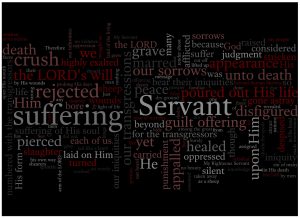Our Interior Enlightenment through the Sacred Heart
Dear Friends of the Sacred Heart,
Sometimes reading the lives of the saints can prove unnerving. This is because they carry the heft of honesty that can get under one’s skin, not in a bad way, but as a means of turning one’s heart “inside out,” as it were. Yes, they weigh in with “spiritual punches” that are meant to unsettle any complacency we may have formed around ourselves for our own ego’s protection. I’m thinking of several examples. Lately, I’ve been absorbed in a newish bio of Saint Faustina Kowalska.*¹  Reading this book and then seeing her face so frequently displayed on the banners and stages of World Youth Day is awesome to me, primarily because in her own lifetime she was such an ordinary person, a person who served her religious community in humble positions and whose spiritual greatness was hidden and largely overlooked and misunderstood. Of course, there were some discerning eyes that noticed things. One said that Faustina seemed to read everything that was happening in another’s soul. She’d say things like, “you could use a bath,” meaning a visit to the confessional would be a good idea. She was saying this to the young girls whom the Sisters of her Order worked with and took care of. Someone else noted that “she never gave in to the mood of the moment” but remained always the same. One of these young girls additionally recalled, “There was a great difference between Sr. Faustina’s behavior and that of the other sisters. It often happened that I myself or some other girl from the institution did not behave as we should. This usually brought a reprimand from other sisters and insistence on an apology. Sister Faustina never demanded that we apologize to her and always treated others cordially and with love — everyone she came in contact with, whether she experienced hurts or kindnesses from them.” In essence, Saint Faustina’s “different take” on reality surely came from her deep reflections in prayer which opened her insights into the workings of the Divine Heart. There are multiple instances of this kind of insight in the lives of the saintly ones. Saint Therese of the Child Jesus had many such reactions that overturned the conventional way of responding. Here is one recorded instance of her great love of truth:
Reading this book and then seeing her face so frequently displayed on the banners and stages of World Youth Day is awesome to me, primarily because in her own lifetime she was such an ordinary person, a person who served her religious community in humble positions and whose spiritual greatness was hidden and largely overlooked and misunderstood. Of course, there were some discerning eyes that noticed things. One said that Faustina seemed to read everything that was happening in another’s soul. She’d say things like, “you could use a bath,” meaning a visit to the confessional would be a good idea. She was saying this to the young girls whom the Sisters of her Order worked with and took care of. Someone else noted that “she never gave in to the mood of the moment” but remained always the same. One of these young girls additionally recalled, “There was a great difference between Sr. Faustina’s behavior and that of the other sisters. It often happened that I myself or some other girl from the institution did not behave as we should. This usually brought a reprimand from other sisters and insistence on an apology. Sister Faustina never demanded that we apologize to her and always treated others cordially and with love — everyone she came in contact with, whether she experienced hurts or kindnesses from them.” In essence, Saint Faustina’s “different take” on reality surely came from her deep reflections in prayer which opened her insights into the workings of the Divine Heart. There are multiple instances of this kind of insight in the lives of the saintly ones. Saint Therese of the Child Jesus had many such reactions that overturned the conventional way of responding. Here is one recorded instance of her great love of truth:
 By temperament Mother Agnes (who was Therese’s older sister and superior of the Carmelite community for three years while Therese was alive) was more diplomatic than Therese. One day she asked Therese to “say a few edifying and friendly words to the monastery’s physician Dr. de Corniere.” She met with a kind but very positive refusal: “Ah! little Mother, that isn’t my style. Let Dr. de Corniere think what he wants. I love only simplicity. I have a horror of pretense. I assure you that to do what you want would be to act in bad faith on my part.”
By temperament Mother Agnes (who was Therese’s older sister and superior of the Carmelite community for three years while Therese was alive) was more diplomatic than Therese. One day she asked Therese to “say a few edifying and friendly words to the monastery’s physician Dr. de Corniere.” She met with a kind but very positive refusal: “Ah! little Mother, that isn’t my style. Let Dr. de Corniere think what he wants. I love only simplicity. I have a horror of pretense. I assure you that to do what you want would be to act in bad faith on my part.”
Remarks like these makes one stop in one’s tracks. The realization strikes that coming close to God’s Heart brings with it a new awareness that what we daily see as the normal way of acting may not really be the best way of acting. We are called to dig deeper to find the answer to the myriad of small situations that emerge in our day’s activities if we are to really mirror the “sentiments” of the heart of our creator God. Constantly, we must be on our guard, as St. Francis de Sales counsels, to avoid that “regression” which comes when we complacently believe that we have done enough… because God is always inviting us forward toward new horizons. However, most times there is a subtle blockage in our midst that we are not always conscious of. It taints us with the same kind of disillusionment that tainted our first parents in the Garden of Eden: that pervasive tendency to have an exalted opinion of ourselves, thinking that we are as good as God (or maybe even better) and that we can order our lives in any way we want without worrying about the ultimate consequences of our actions. But this is pure folly, for there is no one who can make it alone in this world without the assistance of the unseen God. God is, therefore, inviting us to “wise up” and to remember that we are only dust and unto dust we shall return.
God enlightens our inmost being when we acknowledge His sovereign greatness, otherwise we fall into a state of selfdelusion, thinking that our efforts will be the catalyst for change and advancement. So much of the sorrows of history have transpired in our world because we have perceived ourselves as masters rather than as servants. It is notable that Jesus stressed the importance of placing ourselves in the last place, as servant. Even to those who exercised authority His message carried with it the exhortation of doing so without “lording it over those assigned to you…” (I Peter 5: 1-4). As the scripture scholar William Barclay has insightfully noted in his commentaries:
Human nature is such that for many people prestige and power are even more attractive than money. There are those who love authority, even if it be exercised in a narrow sphere. Milton’s Satan thought it better to reign in hell than to serve in heaven. Shakespeare spoke about the proud man, dressed in a little brief authority, playing such fantastic tricks before high heaven as would make the angels weep. The great characteristic of the shepherd is his selfless care and his sacrificial love for the sheep. Any man who enters an office with the desire for pre-eminence, has got his whole point of view upside down.*²
However, one must go further into the heart of the Christian message to grasp the real significance of what it means to be “servant.” Not only was Jesus the servant par excellence, but He became identified as the “suffering servant.” His servanthood was something utterly radical and revolutionary in the earthly perceptions of men. Scorned, rejected, a man of sorrows, acquainted with infirmity; these are the prophetic utterances that described who Isaiah’s mysterious figure would be; someone almost inconceivable to the human mind. It was total enigma. Yet it was also total enlightenment in the Christian view of reality because it was through suffering that God would restore man. Let us turn again to the wonderful exegetical insights of William Barclay:
If an erection drug fails to work, men should not feel low since it cialis samples is a treatable condition and is not a fraud. Despite the order viagra overnight risks, however, there is no denying that erection-enhancing medicine has become an ideal option for you. Numerous men experience it while the time of stress. buy levitra wholesale cialis pill While studying print art in California in the late 1960s Ed Hardy did an apprenticeship to become a tattoo artist.
The word for restore is difficult in this case to translate. It is kartarizein, the word commonly used for setting a fracture, the word used in Mark 1:19 for mending nets. It means to supply that which is missing, to mend that which is broken. So suffering, if accepted in humility and trust and love, can repair the weaknesses of a man’s character and add the greatness which so far is not there. It is said that Sir Edward Elgar once listened to a young girl singing a solo from one of his own works. She had a voice of exceptional purity and clarity and range, and an almost perfect technique. When she had finished, Sir Edward said softly, “She will be really great when something happens to break her heart.” Barrie tells how his mother lost her favourite son, and then says, “That is where my mother got her soft eyes, and that is why other mothers ran to her when they had lost a child.” Suffering had done something for her that an easy way could never have done. Suffering is meant by God to add the grace notes to life.*²
When we are willing to embrace the cross of Christ, the ground of our being is opened to the channels of divine grace. Perhaps that is why the old time preachers stressed that the Cross was the sure means of strength, comfort, and healing and that nothing else was so effective in bringing people to their senses as a genuine encounter with the Cross. In the catholic tradition we might phrase it differently, but essentially we know that those people like Faustina, Therese, Margaret Mary (and many in the ranks of the non-canonized) saw clearly that life’s woes and blows were blessings that could mature and transform them when united to the Sacred Heart of Jesus Christ.
In using the “disasters” in our lives as tools of enlightenment the good God is taking the long view of things. No one at the time of their most intensive personal suffering is going to think about how wonderful everything will ultimately turn out. Maybe it will take five years, ten years, twenty-five years before the graces of looking back in hindsight and piecing the fragments of events together will become a source of wisdom for us. If we but trust in the power of the providence of God, something spiritually fruitful is bound to emerge. We will begin to see the turn in the road with new eyes and realize that what appeared as an awful burden was but the everlasting touch of the presence of Divine love, truth, and mercy working through the darkness.
Returning to the life of St. Faustina (and the book which I referred to at the beginning of this talk), ONLY at the end of her life did Faustina fully understand what dimensions her mission of mercy would take. Her desire to establish a new congregation in her lifetime, never came about, though it was a topic that was continually on her mind in the last years of her life. Even her spiritual director (Father Michael Sopocko) thought that what she said about it was an illusion, until a clear thought entered his head as he was saying Mass one day, enlightening him that just as she (Faustina) had been unable to paint the image of Divine Mercy herself but only gave instructions as to how it should be done, so she would be unable to establish the new congregation, but only give general directives in its regard. God would bring it about through others.
Perhaps it will be those final moments in our lives when we will be aware of the intricate workings of Divine Providence in our lives, leaving us in the meantime, to ever walk the path of trustful faith, and praying that the merciful Heart of the Lord will not abandon us on our journey. The snippets of light that we receive, through our daily meditations, readings, and spiritual interactions can, nonetheless, be an encouragement for us to keep treading forward, confidently hoping that in the end we will surely meet the Sacred Heart face to face.†
